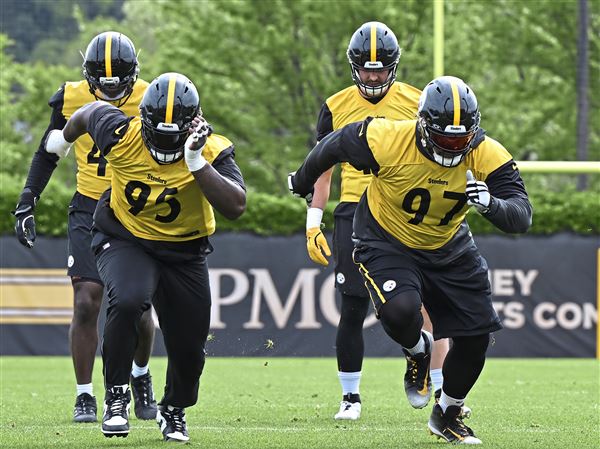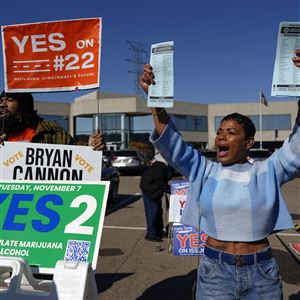Most people may view the Web as a forum for absolute free expression and think they have wide latitude to post comments anonymously, but Pennsylvania defamation law doesn’t necessarily mirror those views, some lawyers said.
However, others in the legal community maintain that the state’s case law governing the circumstances in which an anonymous commenter’s identity can be revealed provides sufficient instruction and, subsequently, there is no threat to anonymous free speech posed by defamation suits adhering to the law as it stands.
Mary Catherine Roper, senior staff attorney at the Pennsylvania chapter of the American Civil Liberties Union, said while Pennsylvania has strict standards for unmasking anonymous commenters, state law does not take into account how website patrons interpret potentially defamatory comments.
“Our law needs to acknowledge what all of us who use the Internet acknowledge: that we don’t take seriously a great deal of what we see there,” Ms. Roper said. “We have traditional principles under defamation law that need to be applied realistically in the context of the Internet. One of those principles is that you don’t sue for something unless there’s a chance that someone will believe it.”
Scott Henderson, an attorney who handles media law at Clark Hill Thorp Reed in Pittsburgh, explained that since the Internet is still a relatively new means of communication, lawmakers have ground to cover regarding Internet-specific statutes.
“The law is often behind the curve when a new medium develops,” Mr. Henderson said. “In terms of developing a real defined body of case law, it’s relatively early in that stage in how it develops over the decades." However, “the application of the libel rules is really the same, whether it applies to speech on the Internet or speech that occurred 50 years ago.”
Burton Caine, a professor of First Amendment and constitutional law at Temple University’s Beasley School of Law, also said that the state has been slow to adopt laws relating to newer methods of communication.
In terms of whether anonymous speech is on the decline, Mr. Caine said, “I think it’s disappearing and it ought to disappear.”
Sprague & Sprague attorney Joseph R. Podraza Jr. represents International Brotherhood of Electrical Workers, Local 98, leader John Dougherty in a defamation case where an anonymous online commenter allegedly called Mr. Dougherty a “pedophile” on a Philadelphia news website. In that case, the court ordered late last month that the identity of the commenter be disclosed.
Mr. Podraza noted that it is now more difficult to unmask an anonymous Internet poster than ever before.
“It’s a very elaborate and expensive process,” Mr. Podraza said. “It’s fraught with a court possibly ruling that the [commenter’s] anonymity is greater than proceeding with the lawsuit.”
Furthermore, “posters can post anywhere in the world. It’s very difficult to pinpoint the location of the poster as well as the identity of that poster,” Mr. Podraza said.
Despite the claims of some that Internet-specific defamation law is still a developing area, lawyers say that Pennsylvania does have definitive case law in determining what warrants the disclosure of an anonymous speaker’s identity, provided by the four-pronged test in Pilchesky v. Gatelli.
In the 2011 Pilchesky case, the state Superior Court ruled that a Lackawanna County trial court failed to examine evidence or apply the proper First Amendment balancing test before ordering the moderator of an online message board to reveal the identities of six pseudonymous posters who made negative comments about a former city councilwoman.
In doing so, the court adopted a modified version of a test that was first formulated in the New Jersey Superior Court to determine whether revealing the identities of anonymous or pseudonymous Internet users is essential to a defamation claim.
The four elements of the Pilchesky test include giving the defendant adequate notice, establishing a prima facie case, proving that the information required is necessary to the case and, finally, balancing the defendant’s First Amendment rights against the strengths of the plaintiff’s case.
“There is a constitutional right which protects, under the First Amendment, anonymous speech; this goes back to colonial days when people were criticizing the government using pen names,” Mr. Henderson said. “But like many constitutional rights, it’s not an absolute right.”
Mr. Podraza said Pilchesky is “a perfect balance” of case law from other states, including Delaware and New Jersey.
“I suspect as time goes on, the Pennsylvania approach will be the majority approach” across the nation, he said.
The Pilchesky test played prominently in Dougherty’s efforts to unseal the identity of the online commenter in his case. Pilchesky also informed Dauphin County Court of Common Pleas Judge Jeannine Turgeon’s ruling in November 2012 in Sheehan v. PennLive.
In Sheehan, Turgeon ordered the disclosure of the identity of an anonymous poster whose comments were construed by the plaintiff, who was running for public office, as an accusation that she had stolen from a charity.
Defamation cases involving the disclosure of the identities of anonymous online commenters are not new occurrences: A notable example of a pre-Pilchesky action is the 1999 case of Melvin v. Doe.
In that case, former state Supreme Court Justice Joan Orie Melvin, then a Superior Court judge, sought the identities of commenters on a Pittsburgh government-gossip website called “Grant Street 99,” alleging she had engaged in “misconduct” by lobbying former Gov. Tom Ridge’s administration to appoint a particular lawyer to a judicial vacancy.
Initially, the Pittsburgh trial court ordered the commenters’ identities be revealed. In 2003, the case was taken up by the state Supreme Court. In the court’s opinion, former Justice William H. Lamb said the disclosure of the commenters’ identities posed “a significant possibility of trespass upon their First Amendment rights.”
P.J. D’Annunzio can be contacted at 215-557-2315 or pdannunzio@alm.com. Follow him on Twitter @PJDAnnunzioTLI. To read more articles like this, visit www.thelegalintelligencer.com.
First Published: April 1, 2014, 1:51 a.m.















